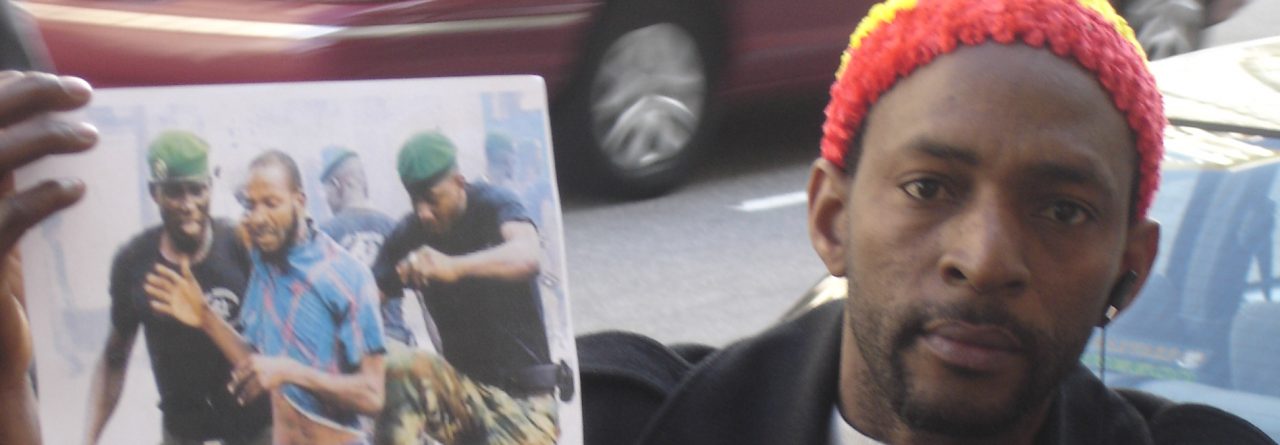Government Denies Responsibility for March Shootings
The Security Minister said today that the government is not responsible for shooting opposition demonstrators because security forces were not carrying guns during the march. Six people were shot with live rounds on April 25, one died, Boubacar Diallo, 16. Note that several march participants said that police in civilian clothes infiltrated the march.
Security Minister Cisse said and later echoed by Governor of Conakry, Sekou “Resco” Camara, the government is bringing in a ballistics expert from the international area to determine the origin of the live rounds. The Guinean government has already exhibited its ability to swindle things of an international nature. UN representative, Said Djinnit found this out when the Guinean government passed off its pick for international dialogue facilitator as someone who was approved all parties . . .not. A shameless government, like Conde’s, does not announce bringing in an international ballistics expert only to have it point to its security services as the culprits.
Actually,Conde has a smorgasbord of state-sponsored forces at his disposal which he has spent a lot of time building up just for moments like opposition demonstrations. The opposition should demand that the investigation into the origin of live rounds be extended beyond the security services into Conde’s increasingly vast “irregular forces.”
Conde increasingly uses mercenaries and ethnic militias (Malinkes) trained in Angola to supplement security forces. During the march, opposition demonstrators reported that RPG Malinke militia members were evident along the perimeter of the march. A few of the injuries to opposition participants included stabbings, a preferred mode of attack by Donzos,or hunters, from the Forest region of Guinea. Before the government forces can be cleared of culpability, they have a large number of mercenaries and militiamen to check out.
UFDG Youth Leader, Bailo Diallo, Arrested
Bailo Diallo was pulled out of a taxi three days ago and taken to a police station in Matam. His condition and circumstances are not apparent. What was he arrested for? In Conde’s Guinea, being with the opposition and being a Peul, is sufficient.
South African Mining Magnate Eyes Simandou Iron Ore Project
After all the focus on BSRG for its shenanigans during the presidency of Lansana Conte to acquire mining rights associated with the Simandou iron ore project, it looks like a South African miner, Patrice Motsepe, owner of South African Rainbow Minerals likes what he sees at Simandou. Motsepe, South Africa’s first black billionaire has been in discussions with Guinean officials and states that, in addition to iron ore, he is interested in building infrastructure to go with it.
One day, we will know more about Conde’s South African connections, especially about Waymark, promises to Jacob Zuma, and the real reasons behind the Simandou drama that might lead to Motsepe’s making a move into Guinea’s world of lucrative mining. For full article: Motsepe eyes Guinea’s iron ore industry
